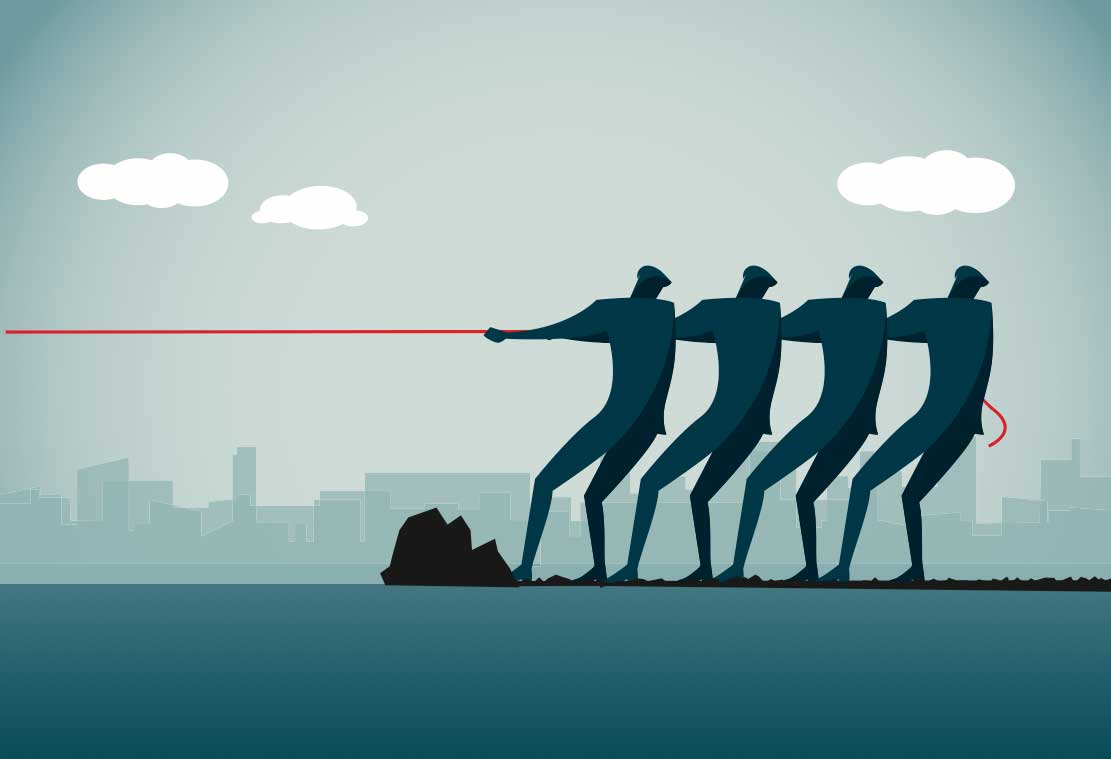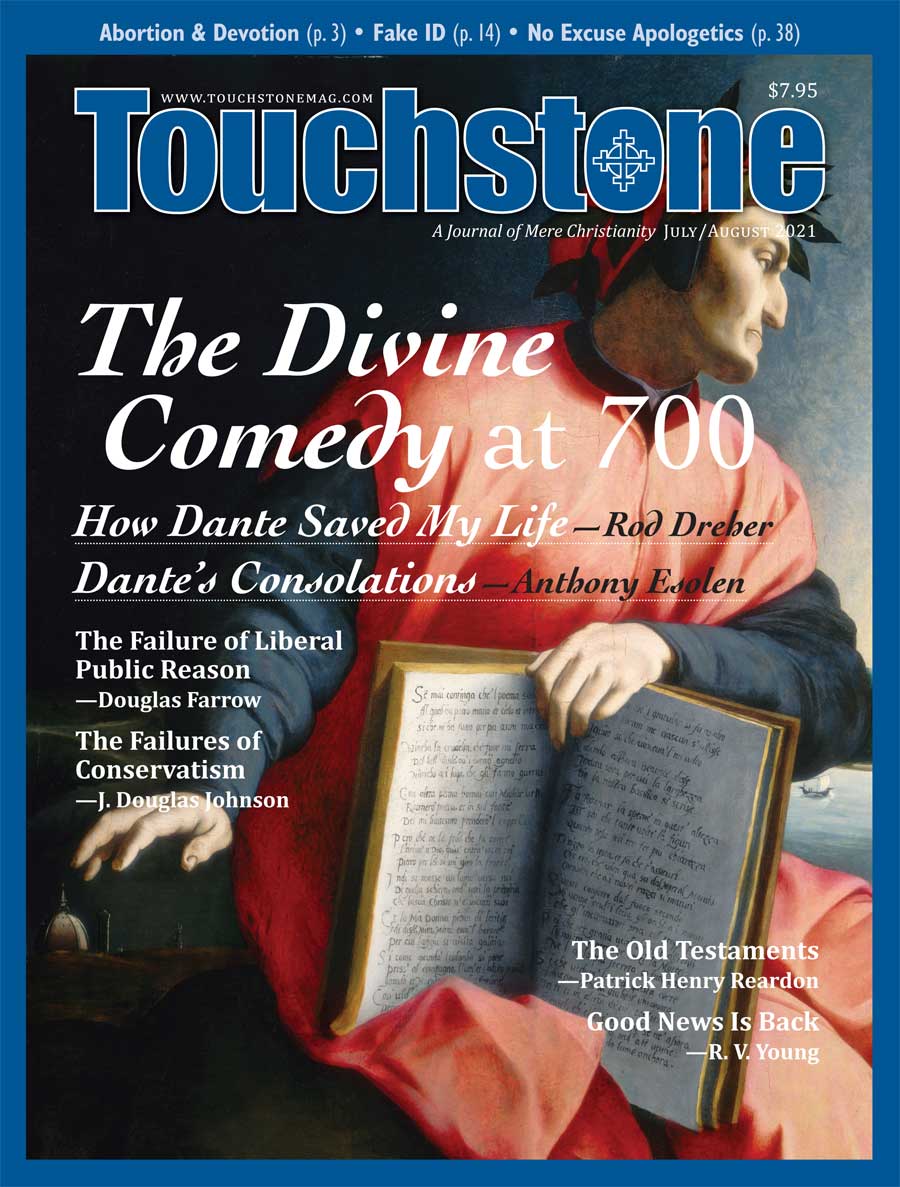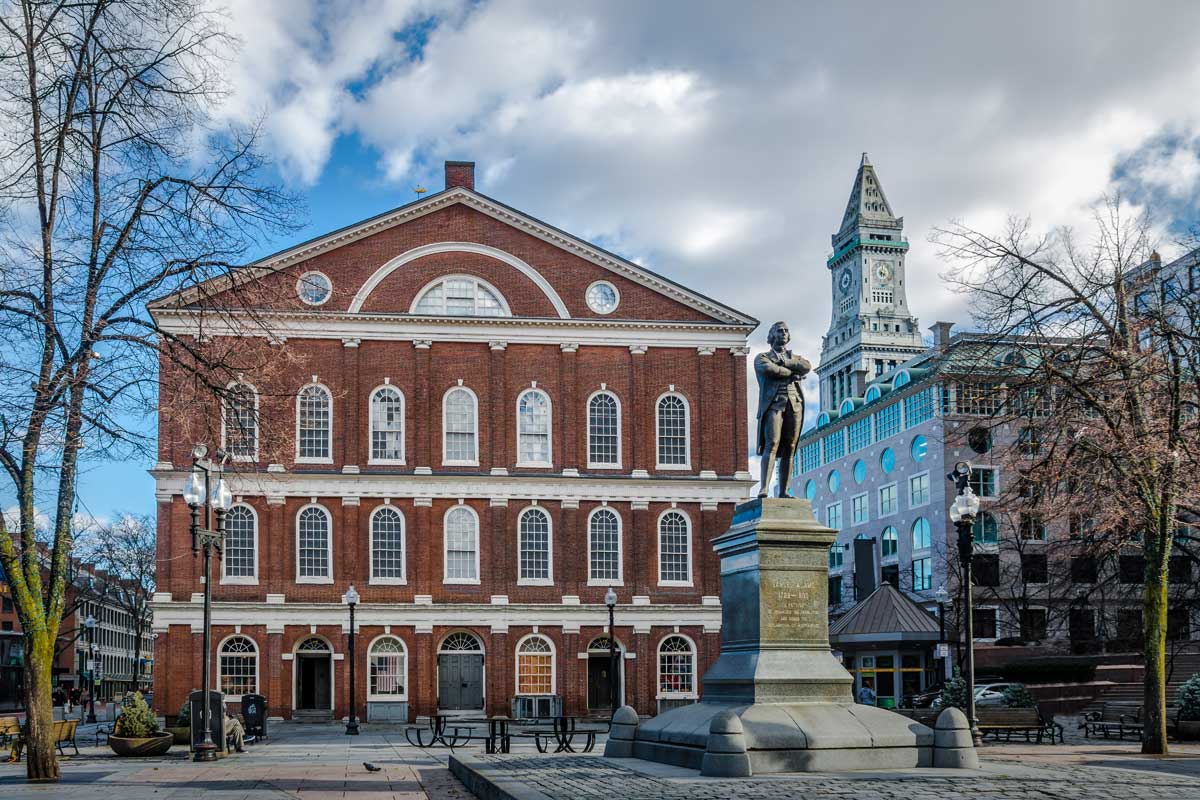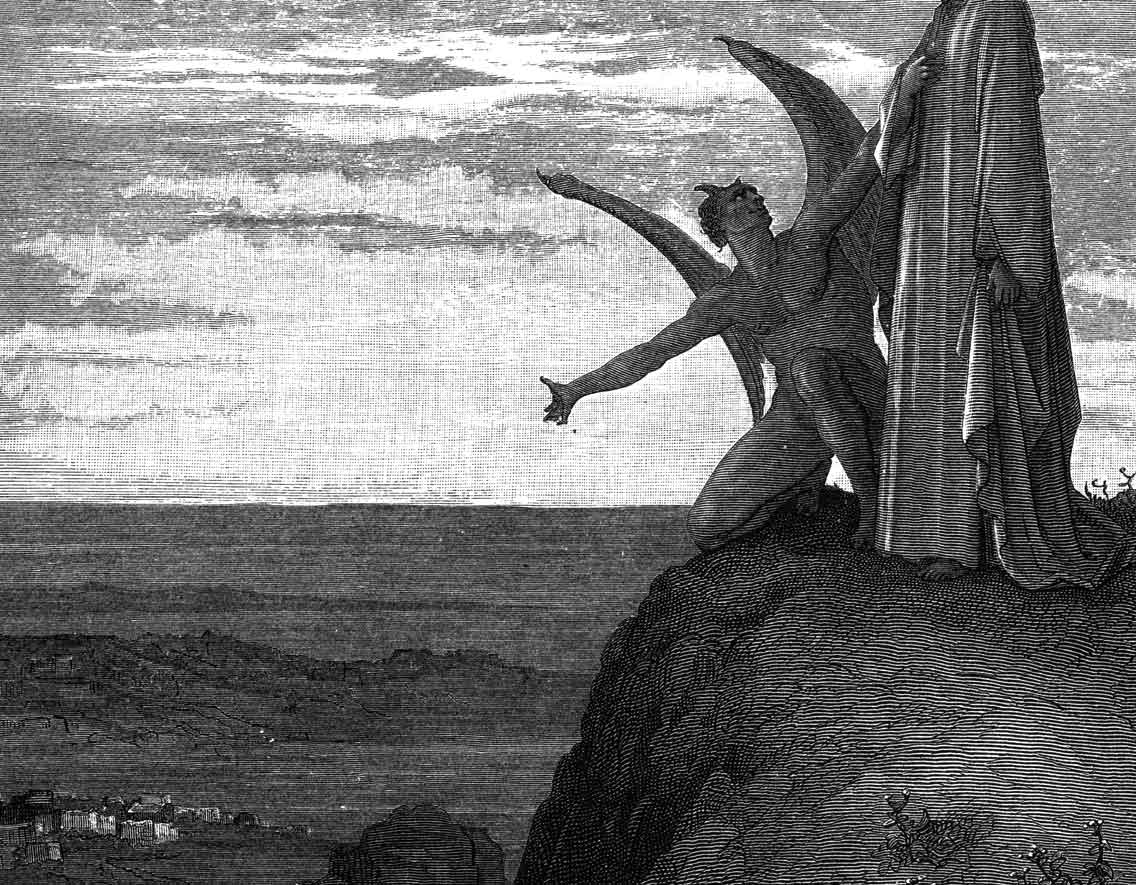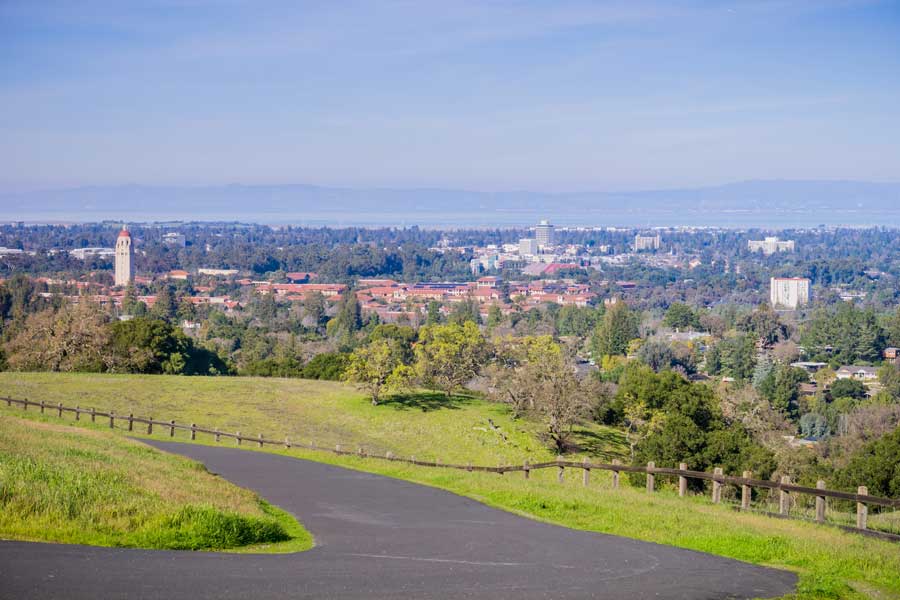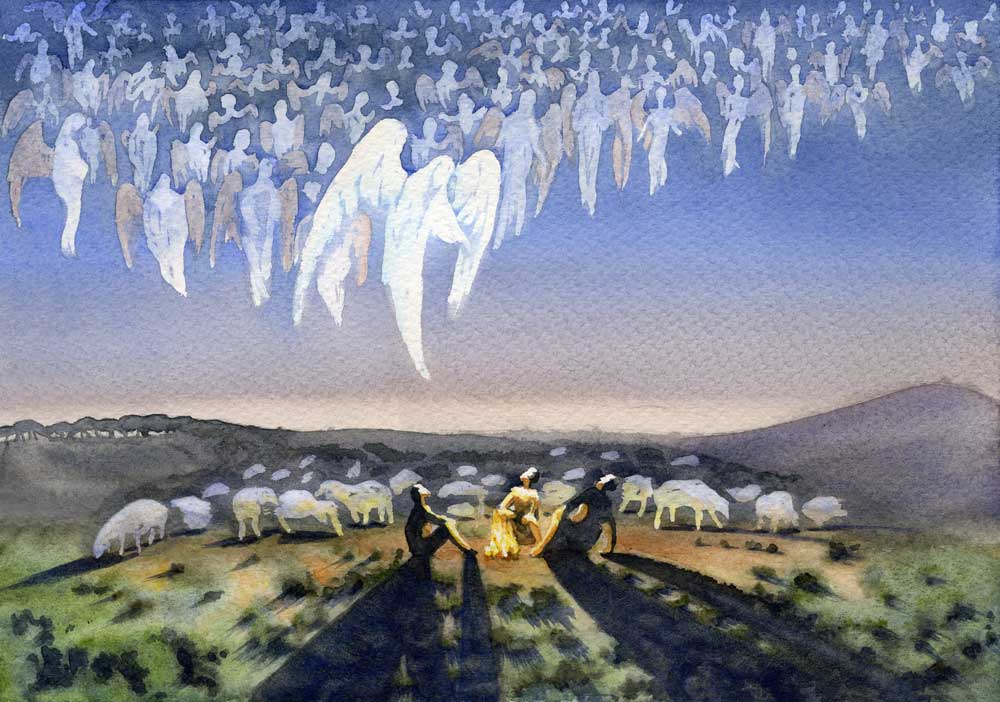Braking Badly
J. Douglas Johnson on Conservatism's Partnership with Godless Liberalism
On the jacket of The Enduring Tension: Capitalism and the Moral Order (Encounter Books, 2021), author Donald Devine is described as "the last of the dozen intellectuals once identified as the 'leading lights' of the postwar fusionist reevaluation of conservative and libertarian thinking." Devine was an advisor to President Ronald Reagan and served as director of the U.S. Office of Personnel Management during Reagan's first term.
"Fusionism" is a word you have probably never heard or at least not heard in a very long time. In the early 1960s, it was the term given to an attempt by Frank Meyer, one of the founding editors of National Review, to unite the factions of the nascent conservative movement into a 50-plus-1-percent majority that could win elections.
Fusionism was a response to a conservative breakup that began not long after the movement started. In 1957, National Review published a review by Whittaker Chambers of Ayn Rand's Atlas Shrugged that might be the single most withering critique of a political book ever written by a man who agreed with most of what it had to say. Among those who have read the review but not looked at it for some time, I suspect there is one line you still remember: "From almost any page of Atlas Shrugged, a voice can be heard, from painful necessity, commanding: 'To the gas chambers—go!'"
The libertarian Rand never forgave National Review editor William F. Buckley for publishing that review, and her implacability contributed to a longstanding rift between the more tradition-oriented wing of American conservatism, represented by men like Chambers, Russell Kirk, and Eric Voegelin, and the libertarian wing, represented by Rand and the economists F. A. Hayek and (later) Milton Friedman.
Affecting Speed, Not Direction
Chambers was long suspicious of the American conservative movement, believing it was on a trajectory not sufficiently different from that of the communist system he had fled. He argued that nations, like men, must choose between God and man, and he worried that a capitalist materialism that delivered the goods put people in no better a position to make the right choice than did a Soviet materialism that did not deliver the goods. As he wrote some years later, "The West believes its destiny is prosperity and an abundance of goods. So does the Politburo."
For their part, libertarians feared that traditionalists meant to infringe on individual liberty by harnessing the powers of the state to advance their agenda. This was anathema to economists like Hayek, who penned "Why I Am Not a Conservative" as a postscript to his book The Constitution of Liberty (1960).
"Defection" would be the wrong word to use of Chambers and Hayek because it implies that they joined up with the other side, which neither ever considered. But what they both came to see, from two different and unrelated perspectives, was that the conservative movement and its so-called liberal opponents were ultimately, if unwittingly, working in tandem to move the country in the wrong direction. Consider this passage from Hayek's "Why I Am Not a Conservative":
It is that by its very nature [that conservatism] cannot offer an alternative to the direction in which we are moving. It may succeed . . . in slowing down undesirable developments, but since it does not indicate another direction, it cannot prevent their continuance. It has, for this reason, invariably been the fate of conservatism to be dragged along a path not of its own choosing. The tug of war between conservatives and progressives can only affect the speed, not the direction, of contemporary developments. But though there is need for a "brake on the vehicle of progress," I personally cannot be content with simply helping to apply the brake.
Few today could take seriously the suggestion that political conservatives and progressives are working in tandem, but consider how many self-described conservatives were unwilling to defend something as fundamental as marriage in the run-up to the Supreme Court's radical redefinition in Obergefell. Or consider the following from Patrick Ruffini, a prominent Republican strategist (and yet another National Review alumnus) who also signed an amicus curiae brief defending the redefinition of marriage. In a Twitter post containing a photo of Paris aflame from leftwing rioting, he wrote: "Neo-liberalism is basically good! But this is what happens when you don't have people on the right around to curb its worst excesses."
A left-leaning man responded to that post by saying he would be more open to conservatives if they would not get in the way of progressives but would instead just "advise them to make sure the math checks out." "This is exactly what conservatism is!" Ruffini responded. And it is also why Chambers and Hayek broke (albeit for very different reasons) with the conservative movement.
Gratitude, but Not God
Ruffini's praise for "neo-liberalism" (in the midst of a riot, no less) is a fitting example of the one-track liberalism that Patrick Deneen writes about in Why Liberalism Failed (Yale University Press, 2018). The American left and right, for all their bluster, have reached a unified middle, Deneen argues, whereby the right has mostly given up its defense of the natural family and morality in exchange for a capitalist system, and the left has mostly given up its opposition to capitalism in exchange for the expulsion of God from the public square and the normalization/celebration of all sexual immorality.
Economic libertarians like Donald Devine believe that civilization is collapsing, but they think the reason for the collapse is that Americans haven't cultivated sufficient gratitude for the prosperity that capitalists have delivered. The first two sentences of his introduction to The Enduring Tension read: "Western Civilization under its capitalist economic order has produced a worldwide cornucopia of consumer goods and a remarkable improvement in human health. But few among the beneficiaries are grateful."
Devine believes that capitalism is the most important gift that Western civilization has bequeathed to itself, and he works backwards from there—quoting a mountain of scholarship—to make a moral case demonstrating that: (1) the roots of capitalism run deep; (2) attempts to tame capitalism in the United States always backfire; (3) other fields, such as religion and science, offer no better alternatives; and (4) even if there were a better system out there (and I agree with Devine that there is not) we are too pluralistic to have any hope of adopting it. I, too, dislike many of the things Devine dislikes (and on no page of The Enduring Tension do I hear "To the gas chambers, go!"), but there is nothing here that can save the country, in part because no political formulation has ever rescued any nation from pending demise.
As for God in the public square, Devine does not argue that Christianity is incompatible with a capitalist moral order, although he does make the case that it tends to get in the way (Pope Francis's socialist mutterings give him an easy target). Or I should say that he lets others make these arguments; few of his own thoughts and words appear in the book.
One writer Devine quotes favorably and often is former National Review senior editor Jonah Goldberg. The latter, in Suicide of the West (Crown Forum, 2018), also argues that America needs to cultivate gratitude for what its people have accomplished in setting up the capitalist system that has provided so much wealth for so many. Goldberg refers to what Western man has accomplished through capitalism as "the great Miracle." This word is always capitalized, yet, lest anyone should mistake what he means by "Miracle," he makes clear in the first sentence of his introduction that "There is no God in this book."
What Devine, Goldberg, and most of the writers at National Review share in common is an approach to understanding truth, order, and conservatism "etsi Deus non daretur" ("as if God did not exist"). This slogan of the Enlightenment asks us to think in terms of what remains true even if God isn't. Stated that way, the contradiction is obvious. Nonetheless, that slogan describes a way of seeing the world that allows us to bracket God out of our thinking about most of what's happening around us most of the time.
Veluti si Deus . . .
Pope Benedict XVI has written that people should rather "reverse the axiom of the Enlightenment . . . and say: Even one who does not succeed in finding the way of accepting God should, nevertheless, seek to live and to direct his life veluti si Deus daretur, as if God existed." D. C. Schindler, an associate professor of metaphysics and anthropology at the John Paul II Institute in Washington, D.C., means to do just that, as do such writers as his father, David L. Schindler, Patrick Deneen, and the editors of the new journal New Polity.
D. C. Schindler says that the Enlightenment philosopher John Locke did something revolutionary, if not a little sneaky, three hundred years ago when he figured out that the way to get around Christian opposition to his work—which had constrained the reach of philosophers such as Thomas Hobbes and Spinoza—was to argue that Christian morality would be preserved under a philosophy of individual autonomy because man would aim his newfound freedom at divine judgment and divine reward.
Schindler points out that treating God and heaven metaphorically as a far-off, future target at which we might take aim constitutes a break from the classical tradition, where "God is present as creator in the world in a very profound and mysterious and intimate way" at all times. Under Locke, says Schindler, God becomes an abstraction that we are free to think about in our leisure hours, but that we are also free to bracket out while we get on with most of our day-to-day living in the here and now.
Thus, Locke's distant God gave us a way to have our autonomous cake and eat it, too. As D. C. Schindler told Ken Myers on an episode of Mars Hill Audio:
[C]onservatives can say that, "well, Locke is saying nothing different. He is pointing to God as the purpose of freedom," and so it gets everyone on board. But it is an arbitrary option alongside other options. And once you, in a certain sense, buy the farm, as it were, then you've untethered freedom from reality, and it can be used in all different sorts of ways.
Freedom & Truth
This might sound like so much tilting at windmills, but it's not. For even if most Westerners today have never read a word of Locke, it is nearly impossible for them to think in any but Lockean terms about freedom and government. For example, how would most people answer the question, What is the government's role with respect to religious freedom under the First Amendment?
The quick answer, and pretty much the only answer for many Americans, is that the government's role is to "remain neutral" on matters of faith, and to silence anyone or any group that lays claim to a single, overriding Truth, should they try to make that claim in the public square. I call this answer the "neutrality myth" because there is nothing neutral about a system dedicated to silencing the proclamation of truth in the name of free choice, given that the God-free default positions across society are necessarily atheist.
Now compare that answer to Pope Benedict's definition of religious freedom as the right to seek and respond to the truth about God, and you'll have some idea of the extent to which our Lockean idea of freedom has been untethered from reality in the Western mind. And, if I dare to pose it, consider this question: Who came closer to our modern Lockean ideal in the world's most famous trial? The Accused, who said he bore witness to the Truth, or the government's representative, who responded, "What is Truth?"
J. Douglas Johnson is the executive editor of Touchstone and the executive director of the Fellowship of St. James.
subscription options
Order
Print/Online Subscription

Get six issues (one year) of Touchstone PLUS full online access including pdf downloads for only $39.95. That's only $3.34 per month!
Order
Online Only
Subscription

Get a one-year full-access subscription to the Touchstone online archives for only $19.95. That's only $1.66 per month!
bulk subscriptions
Order Touchstone subscriptions in bulk and save $10 per sub! Each subscription includes 6 issues of Touchstone plus full online access to touchstonemag.com—including archives, videos, and pdf downloads of recent issues for only $29.95 each! Great for churches or study groups.
Transactions will be processed on a secure server.
more on liberalism from the online archives
more from the online archives
calling all readers
Please Donate
"There are magazines worth reading but few worth saving . . . Touchstone is just such a magazine."
—Alice von Hildebrand
"Here we do not concede one square millimeter of territory to falsehood, folly, contemporary sentimentality, or fashion. We speak the truth, and let God be our judge. . . . Touchstone is the one committedly Christian conservative journal."
—Anthony Esolen, Touchstone senior editor





